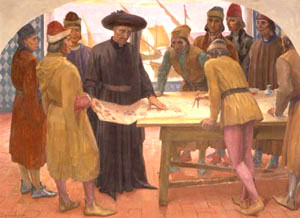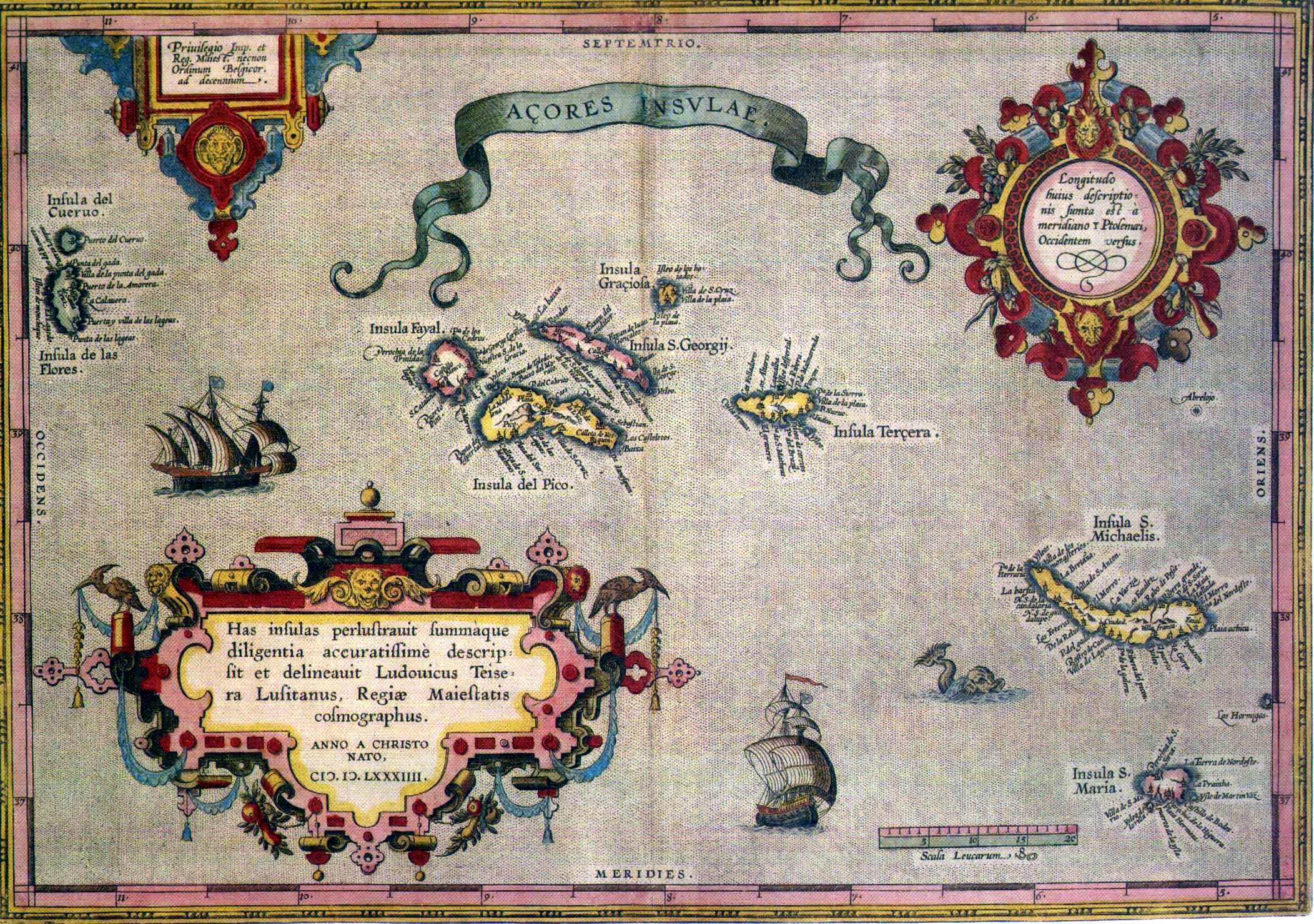
Henry the Navigator
This article, "Nov. 13, 1460: Death Stills Henry the Navigator," by Tony Long, from Wired Magazine on 13 November 2009, asserts: 1460: Infante Henrique (Prince Henry), known to history as Henry the Navigator, dies at 66 in Sagres, Portugal. While not a seafaring man himself, Henry’s zealous advocacy and generous patronage of science, cartography and oceanic navigation effectively opens the age of European exploration.
Henry the Navigator was the third son of Portugal’s King João I, whose ascent to the throne in 1385 touched off a confused period of civil strife and warfare that finally secured Portugal’s independence from Castile. However, the conflicts left much of the royalty impoverished, so Portugal began looking elsewhere for ways of reviving its economy.

At Henry’s urging, the king dispatched a fleet in 1415 to capture the Moorish port of Ceuta. The Moroccan port was a longtime safe haven for the Barbary pirates who marauded along the North African coast. The conquest of Ceuta awakened Henry to the possibilities of the Saharan trade routes and piqued his interest in charting the West African coast south of the Canary Islands.
The world south of Cape Bojador on the African mainland was unknown territory at the time, at least to European sailors. But Henry was determined to discover the extent of the Muslim world, which, as a good Christian of his era, he was hellbent on defeating.
Gil Eannes
Finding someone willing to sail into what the Europeans called the “Sea of Darkness” was not easy, however. It wasn’t until 1434 that the Portuguese explorer Gil Eannes, a former servant of Henry’s, became the first to round the cape. Exploration and commercial exploitation of the West African coast followed soon enough.
Henry, in his capacity as the governor of the Algarve and backed by the treasury of the Order of Christ, began authorizing expeditions into the Atlantic, which resulted in Portugal colonizing the Madeira Islands, the Azores and the Canary Islands. All the while, he was employing cartographers to chart the growing Portuguese world, as well as funding the building of newer, faster ships to expand the Portuguese reach into distant oceans.
Whether Henry actually established a formal school for navigators and cartographers as claimed — and this is the central pillar on which his lofty reputation rests — is unclear. Certainly navigators and mapmakers were in his employ and played a key role in the expansion of the young Portuguese Empire.
The Portuguese had explored the African coast as far south as present-day Sierra Leone by 1462, two years after Henry’s death. Bartolomeu Dias reached the Cape of Good Hope at the southern tip of Africa in 1489. Nine years later, Vasco da Gama became the first European sailor to make landfall in India.
None of this would have been possible without the driving spirit of Henry the Navigator. Not bad for a guy who rarely left home. (source: http://www.wired.com/thisdayintech/tag/henry-the-navigator/)



http://www.refreshonlinecenter.com/.
ReplyDeleteThis is really good
ReplyDeleteThanks for your Post
http://www.livestreamsportshd.com/
Thanks for your good and reliable post
ReplyDeletehttp://gainmoneyfast.com/-94216.htm/